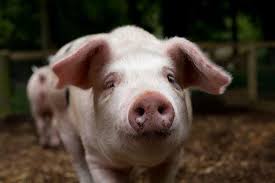Aizawl, Mizoram — The northeastern state of Mizoram experienced a devastating financial loss of Rs 336.49 crore in 2024 due to the outbreak of African Swine Fever (ASF), a highly contagious disease affecting pigs. Official data from Mizoram’s Animal Husbandry and Veterinary (AHV) Department revealed that over 15,000 pigs succumbed to the disease, while an additional 24,200 were culled to prevent its spread.
The ASF outbreak, which first surfaced on February 9, 2024, in Leithum village in Champhai district near the Myanmar border, has left a significant impact on the state’s pig farming industry. The disease’s presence in Mizoram—with its porous borders with Myanmar and Bangladesh—has continued to wreak havoc since its initial emergence in March 2021.
Escalating Losses Over the Years
The cumulative financial losses incurred by the state since 2021 amount to Rs 896.69 crore. Breaking down the annual figures, Mizoram suffered losses of Rs 334.14 crore in 2021, Rs 210.32 crore in 2022, and Rs 15.77 crore in 2023 before the significant spike in 2024. During these years, tens of thousands of pigs and piglets either died or were culled:
- 2021: 33,417 deaths, 12,568 culled
- 2022: 12,795 deaths, 11,686 culled
- 2023: 1,139 deaths, 980 culled
In 2024, ASF fatalities were reported across seven districts, affecting approximately 260 villages. The districts hit hardest include Aizawl, Champhai, Kolasib, Lunglei, Saitual, Khawzawl, and Serchhip. The AHV Department designated these areas as infected zones under the Prevention and Control of Infectious and Contagious Diseases in Animals Act, 2009.
Measures to Curb the Spread
To mitigate the outbreak, the Mizoram government implemented stringent measures, including:
- Prohibiting the supply of pigs, piglets, and pork from infected areas.
- Banning the import of pigs and piglets from neighboring states and countries.
Additionally, the AHV Department has provided compensation to several hundred families affected by the loss of livestock. Despite these efforts, ASF’s impact persists, with new cases reported in Kolasib and Lunglei districts as recently as December 2024.
The Continued Threat of ASF
Experts suggest that ASF outbreaks in Mizoram may be linked to the illegal import of infected pigs or pork products from neighboring regions, including Myanmar and Bangladesh. The disease, which poses no threat to humans, has an exceptionally high mortality rate among pigs, devastating both government and private farms.
The outbreak’s prevalence often coincides with warming climates and pre-monsoon rains, but unusually, cases continued to surface even during the colder winter months of late 2024.
Impact on the Pork Industry
The northeastern region’s pork industry, valued at Rs 8,000-10,000 crore annually, has faced severe disruptions due to the ASF outbreak. Pork is a staple in Mizoram and the broader northeast, where it is widely consumed by tribal and non-tribal communities alike. While Assam remains the largest supplier of pork in the region, Mizoram’s losses underscore the need for stricter biosecurity measures and coordinated regional efforts to combat the disease.
As Mizoram grapples with the ongoing crisis, state authorities remain vigilant, aiming to contain ASF while supporting affected farmers and reviving the vital pig farming sector.











